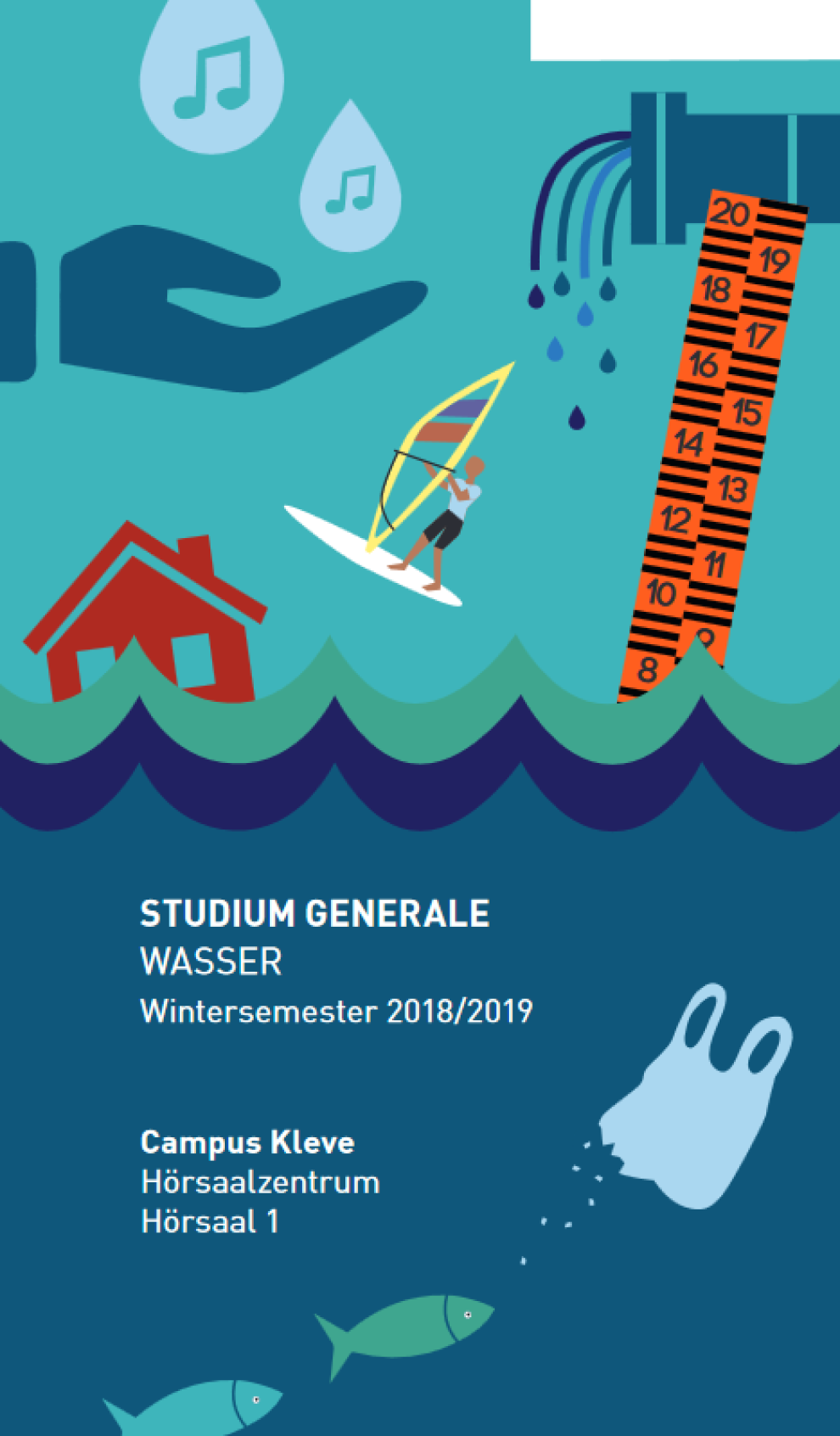Second event Studium Generale on October 23rd at 7pm in the AudiMax, auditorium 1 | KLE 01 EG 005
Lecture title: “Future-proof water management: High-tech meets social innovation”
This year’s Studium Generale is concerned with the multifaceted topic “water”. The free series of lectures continues with the second talk “Future-proof water management: High-tech meets social innovation” on October 23rd at 7pm in the AudiMax, auditorium 1 (KLE 01 EG 005), on campus Kleve (Location: Wiesenstraße 35). The lecture is in German.
Water has always been at the center of our lives. This is the reason why every past and present society has had its own ways to manage water needs and respond to water crises using a variety of technologies. For example, archeological records show how in ancient Rome and India the implementation of water management and technologies was pivotal for the development of basic urban and agricultural areas in these past cultures. The building of irrigation and sanitation infrastructures was seen both as a combination of science and an art.
Nowadays, the challenges of water management are different but at the same time very closely linked. While the water resources of a country is as important as it was in the past, the current challenges facing our societies in relation to water are unparalleled. There are two main reason for this:
First, the available modern technologies for water treatment and management open an abundance of opportunities for managing water. While solutions to the problems of water scarcity or flood water come in different forms, circular water systems have the highest expectations. Circular water systems involve collecting, treating, and reusing wastewater of houses, factories, or farms as much as possible, and they are supposed to be a turning point in water management.
Second, there is the acknowledgement that the social contexts, in which these technologies are to be placed, are complex and matter. It is for that reason that the development of new technologies like circular water systems have to be implemented according to the social needs and demands of particular regions. This makes each water management project unique in the form that it is articulated and the stakeholders and institutions that are most likely to be influential in decision making. It is then when we talk about social innovation, unique configurations of water management technologies applied in particular social contexts according to different expectations.
In his speech, Prof. Alexander Gerber will talk about the challenges and opportunities of applying the ultimate technologies in water circular systems in Spain, Israel and Italy. As representative of Project Ô (European Commission, Horizon 2020), Prof. Gerber will show how the key of success in the introduction of innovative water management technologies comes not only from engineering solutions, but also from social innovation, that is, the awareness and inclusion of several stakeholders in the decision-making processes. This will require the arrangement of events and activities that link technical and social aspirations, under the current framework of the Responsible Research and Innovation (RRI).
Tina von Gimborn-Abbing, director of the Museum fur Kaffeetechnik in Emmerich, will speak about a project in Tanzania which attempts to meet the needs of coffee producers and local communities with water as the main protagonist. She will show an example of corporate social responsibility, in which once a problematic use of water for coffee production turned into a reputable business through collaboration and coordination with local partners in Tanzania.

